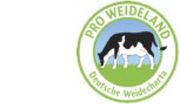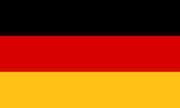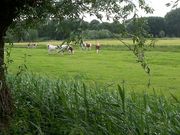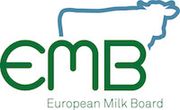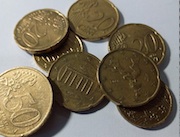EMB Newsletter May 2017
Newsletter as PDF
Contact
EMB - European Milk Board asbl
Rue de la Loi 155
B-1040 Bruxelles
Phone: +32 - 2808 - 1935
Fax: +32 - 2808 - 8265
Dear dairy farmers and interested parties,

Butter is expensive and milk powder is cheap. On this basis, dairies pay low prices that have remained practically unchanged. The price difference between protein and fat is abnormally high and the large EU intervention stock is immediately blamed for the low powder price. Is this correct? The EU has hardly sold any of its large stocks and the market price is currently so low that SMP is being sold to stocks again. But at some point, the price of SMP will of course rise again and the intervention stock will then be a way to curb the rise of milk prices. Therefore, the Commission has to vouch for its statement: ” ... selling at any cost has never been an option for the Commission. Instead, maintaining market balance and price recovery remain its main objectives."
The only hope for dairy farmers to cling to is that the EU stock has become so old that nobody wants to buy it anymore. The stock has no official expiration date, but buyers will of course prefer fresh goods rather than powder which may be one, one and a half or two years old.
In Denmark, we have three analysts trying to predict milk prices and in most cases, they actually do it very well based on different algorithms. On the other hand, neither of them has been able to explain why the demand for milk fat has increased so much compared to the demand for milk protein.
The price difference between butter and protein is more than 2,200 USD per ton, which has never happened before. Somehow demand has changed, which can be a challenge; but with around 350,000 tons of powder in stock in the EU, the prospects for market equality are almost non-existent. Therefore, the Commission has to come up with a solution to get rid of the stock without affecting market prices. Otherwise, all European dairy farmers will be kept in unacceptable uncertainty forever.
Kjartan Poulsen, EMB board member and president of LDM Denmark
France: 11 demands of the candidates in the Presidential election
Germany: new label for pasture-grazed milk
North Rhine-Westphalia: Controversial panel discussion with agricultural policymakers
Phosphate reduction in the Netherlands
EU Parliament Agricultural Committee votes in favour of volume reduction programme
EMB milk price comparison
Assistance for farmers facing difficulties
Impressum
European Milk Board asbl
Rue de la Loi 155
B-1040 Bruxelles
Phone: +32 2808 1935
Fax: +32 2808 8265
E-Mail: office@europeanmilkboard.org
Website: http://www.europeanmilkboard.org


